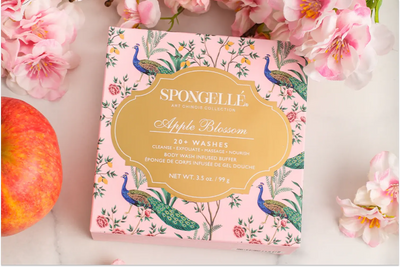After a long and stressful day, taking care of yourself is essential. Creating a relaxing night-time routine can be a simple yet effective way to unwind and improve the quality of our sleep. You may be scrolling your smartphone into the late hours of the night or tossing and turning, trying to drift off.
Whether you're struggling with sleepless nights, feelings of stress, or simply looking to establish a healthy self-care routine, having an evening relaxation regimen can make all the difference. Everyone needs rest and healthy sleep to thrive; even making small changes is better than nothing!
We will explore some simple and easy-to-follow tips for a night-time routine to help you unwind and achieve a good night's sleep.
Prepare for the Next Day
Preparing for the next day can set you up for better sleep and a more productive day. If you lie in bed thinking about tasks you didn't get done or things you need to do in the morning, don't skip this part of the routine.
Preparing for the next day will help you prioritize your tasks, stay organized, and manage your time efficiently. Here are some things you can do at the start of your nighttime routine.
Make a To-Do List
Writing everything down can work wonders for your productivity. Before you end your day, make a to-do list of all the tasks you need to accomplish the next day. Prioritize the tasks based on what's the most important. Your to-do list will help you stay focused and avoid that scattered-brained feeling in the morning.
Lay Out Clothes or Pack a Bag
Try laying out your clothes and packing your bag the night before you go to work or school. Not only will this save you time in your morning routine, but it will also relieve some of the stress if you struggle with anxiety about what's ahead when falling asleep.
Set Your Alarm and Charge Your Devices
Set your alarm before you get in bed. You'll remember that you set it, and you won't be falling asleep worrying that you forgot. You want to make sure your phone is on the charger so it doesn't die during the night. You can also charge your other devices, like your smartwatch, tablet, or laptop, to set yourself up for success tomorrow morning.
Tidy Up Your Space
Cleaning up your space can help you manage stress and relax. Before you go to bed, take a few minutes to tidy up your living area. Put away any clutter, wash dishes, and organize your things. You don't need to deep clean, but spending 10 minutes picking up can help prevent a larger mess from piling up over time.
Food Preparation
If you're going to work or school, prepare your meals for the next day or pack your snack. You can set yourself up for success by having healthy options on hand. A balanced diet during the day will help you get restful sleep at night.
Practice Yoga or Meditation
Yoga and meditation have been used for centuries to promote relaxation and inner peace. Incorporating these practices into a nighttime routine can create a sense of calm in your mind and body, preparing you for sleep.
Yoga involves many poses that can help reduce tension and promote relaxation. One pose to try before bedtime is the child's pose, which is when you kneel on the floor with your forehead resting on the mat and arms extended in front of your body. This pose stretches your back and hips.
Another beneficial pose before sleep is the wall pose. You lay on your back with your legs extended up against a wall. This pose promotes blood flow and is great for people that struggle with swelling or discomfort in the legs.
If yoga isn't your thing, you can try incorporating meditation. This practice can also help calm your mind and reduce stress, making it easier to drift off to sleep. You'll want to find a comfortable place to sit and focus on breathing. Allow yourself to observe your thoughts without judgment. Gradually, your mind will become more relaxed.
By taking the time with yoga or meditation, you care for yourself and create a sense of inner balance and peace. Both practices can help you get a restful night's sleep and have a more relaxed state of mind throughout the day.
Take a Relaxing Bath or Shower
Enjoying a relaxing bath or shower can be an incredibly effective way to wind down after a long day. Whether you prefer a warm soak or a refreshing shower, both can be calming and soothing. Warm water eases tension and allows you to relax.
Showering or bathing right before bed can signal your brain that it's time for sleep. Keeping up with the same routine can make falling asleep and staying asleep easier.
You can add a few little luxuries to enhance the experience and maximize its benefits. Try adding essential oil or bath salts or using a nourishing body wash. You can also play slow music and light candles for a relaxing atmosphere.
Spongellé offers luxurious body wash-infused buffers and sponges to wash away the day and create a calming aroma. The French Lavender Wild Flower Bath Sponge will fill your bathroom with the scent of a signature blend of soothing lavender and warming amber.
After you get out of the shower, pat yourself dry and finish the French Lavender Body Lotion. The formulation has notes of crisp hesperides, dreamy tea rose, and soothing lavender tea. Our lotion is made with shea butter, jojoba oil, safflower seed oil, and vitamin E to keep your skin soft and smooth for hours.
Taking a bath or shower not only can help you relax, but it also has a number of possible physical benefits. Soaking in water can help relieve sore muscles, and showering can improve circulation and promote healthy skin and hair.
Create a Calm Environment
Creating a calm atmosphere is essential for a restful night's sleep. Here are some tips for how to set up your sleep environment as you get ready for bed.
Set the Temperature
The ideal temperature for sleeping is between 60 and 67 degrees Fahrenheit, so hit the thermostat. The temperature may vary from person to person, but the range helps people feel comfortable. When your bedroom is too warm or cold, it can disrupt your sleep and leave you restless.
Use Comfortable Bedding
The air in the room isn't the only thing that needs to be comfortable. Investing in quality bedding and pillows is also important. When your sheets, blankets, and pillows are all soft and cozy, you'll be more eager to get into bed.
You can use bedding made from materials like bamboo because it's breathable and will help regulate your body temperature. Synthetic materials can trap heat and moisture, hindering you from getting enough sleep.
Reduce Noise and Distractions
Reducing noise and distractions is another key element to a calm environment. Use earplugs or a white noise machine if you live in a noisy area. You can also hang blackout curtains to block any light creeping in if it bothers you after you turn the lights out.
Try Soothing Activities
You can do a relaxing or soothing activity before bed as part of your sleep hygiene routine. These activities will help calm your mind and help you drift off to sleep. Creating a skincare routine or reading a book are excellent activities to try.
Not only can reading help take your mind off any worries or stress from the day, but it can also help you enter a state of relaxation. It's a low-stress and interesting activity, making it an ideal way to wind down after a busy day. Additionally, reading can slow down our heart rate and breathing, signaling your body that it's time to sleep.
Listening to soothing music is another effective way to get ready for bed. Music can have a powerful effect on you, and research has shown that listening to slow, soothing tunes before bed can improve sleep quality. It can also increase the amount of deep sleep you get.
Music may even be able to make you fall asleep faster. One study looked at women with symptoms of insomnia. The participants played music as they got ready for bed for ten straight nights. Before they listened to music, it took them 27 to 69 minutes to fall asleep. After adding some mellow tunes, it only took six to 13 minutes.
It's important to choose music that you find calming and enjoyable. The same songs and playlists won't work for everyone.
Reduce Your Screen Time
You'll notice we didn't include scrolling on social media or watching TV as a calming activity. While you may feel relaxed while doing these things, they can make it harder to fall asleep. You should consider reducing your screen time an hour before bed.
Research shows that excessive screen time before bed can have harmful effects on your sleep quality. One of the reasons for this is the blue light your phone emits. This light can suppress melatonin, a hormone that regulates sleep-wake cycles. Blue light can disrupt your body's natural circadian rhythm, making falling and staying asleep more difficult.
Another factor to consider is the content you consume while scrolling on your phone. If you're watching videos or reading something, it can be mentally stimulating or cause stress and anxiety. You want to stay away from something making it harder to unwind.
It can be hard to put your phone down, but you'll notice positive effects when you create a technology-free bedtime routine. If you are going to use your electronic devices, consider changing the setting to night shift, which will filter out blue light. You can also wear blue light glasses.
Herbal Sleep Remedies
You may just need to introduce an herbal sleep remedy to your nighttime routine. These remedies have been used for centuries to help people fall asleep faster. One of the most popular herbal sleep aids is chamomile.
Chamomile is a natural sedative that contains flavonoids and terpenoids that helps the body relax. You can try drinking chamomile tea before bedtime. Another herbal tea you make like is one that contains valerian root.
This root contains compounds that sedate the nervous system, making it easier for people to fall asleep. However, it can take several weeks before you see the effects, so a single cup of tea may not make a huge difference in your sleep habits. You also don't want to combine it with alcohol. Some herbs and supplements may interact with your medications, so seeking medical advice before introducing something new is crucial.
Sleep Tight
Creating a night routine can help ensure you get a restful night's sleep and that you head off to dreamland quickly. Try creating a calm environment, taking a warm bath or shower, and doing relaxing activities before bed as part of a soothing bedtime ritual. Spongellé has all the calming body products to help prepare your mind and body for the best sleep, so that you can be your best self when you wake up.
Sources
How often should you shower? Seasons, ages, and more | Medical News Today
The Best Temperature for Sleep: Advice & Tips | Sleep Foundation
Reading for just 6 minutes can slow your heart rate and ease muscle tension | Pan Macmillan
Blue in the Face: The Effects of Blue Light on Sleep | SBM
Chamomile: A herbal medicine of the past with bright future | PMC















